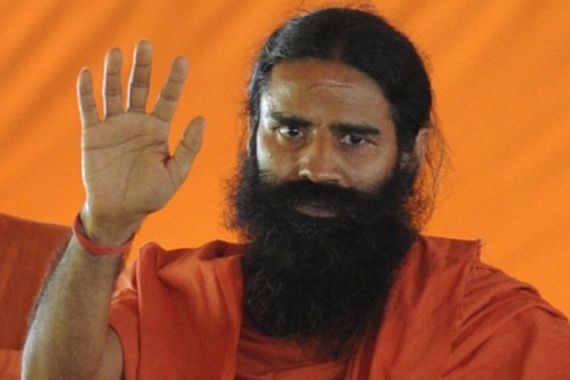Police end Indian yoga guru’s fast
Tear gas used to disperse Baba Ramdev and his supporters on mass hunger strike over corruption.

Police in India have broken up a mass hunger strike led by the country’s most famous yoga guru by detaining him briefly and using tear gas on his supporters.
Baba Ramdev, who has a following of over 30 million, owns a ‘peace’ island in Scotland, and is worth over $40m, had been fasting in the Indian capital New Delhi since Saturday to press the government for tougher action against rampant corruption.
Hundreds of police officers swooped down early on Sunday on the venue of the hunger strike and forcibly removed the guru and thousands of his supporters. About 30 people were injured in the police action.
Officers detained Baba Ramdev for security reasons, but later released him, said Rajan Bhagat, a police spokesperson.
“The permission was for a yoga camp for 5,000 not for 50,000 people for agitation. We have cancelled the permission and asked them to move out,” Bhagat added.
Attempts by the federal government to dissuade the guru from going on fast had failed earlier with talks between him and ministers breaking down.
‘Unaccounted wealth’
One of Baba Ramdev’s key demands include government steps to get back “unaccounted wealth” that the corrupt have stashed away abroad.
The government said on Saturday that it had agreed to most of Ramdev’s demands, but he appeared determined to continue his fast.
|
Sociologist Ashis Nandy discusses Ramdev’s anti-corruption call |
Sunday’s forcible eviction could potentially lead to a hardening of Baba Ramdev’s stance and spark protests by his supporters across the country.
His fast came weeks after a similar hunger strike by veteran social activist Anna Hazare galvanised the Indian middle class and put the government under immense pressure.
Speaking to Al Jazeera, Ashis Nandy, a sociologist and political scientist, said Baba Ramdev is popular primarily as a yoga guru and teacher, but the police action to disband his meeting may help him become a more prominent public figure.
“The regime felt that his movement was attracting the opposition and beginning to turn into a larger movement that would be controlled by the opposition,” he said.
“They are afraid of this issue because this is a hugely popular and salient issue in India today, and there is always the fear that somebody will turn it into an anti-regime protest.”
Several corruption scandals have dented the government’s popularity in recent months. The alleged complicity of powerful officials in the scams – including one ex-telecom minister currently in jail – have added to the government’s embarrassment.